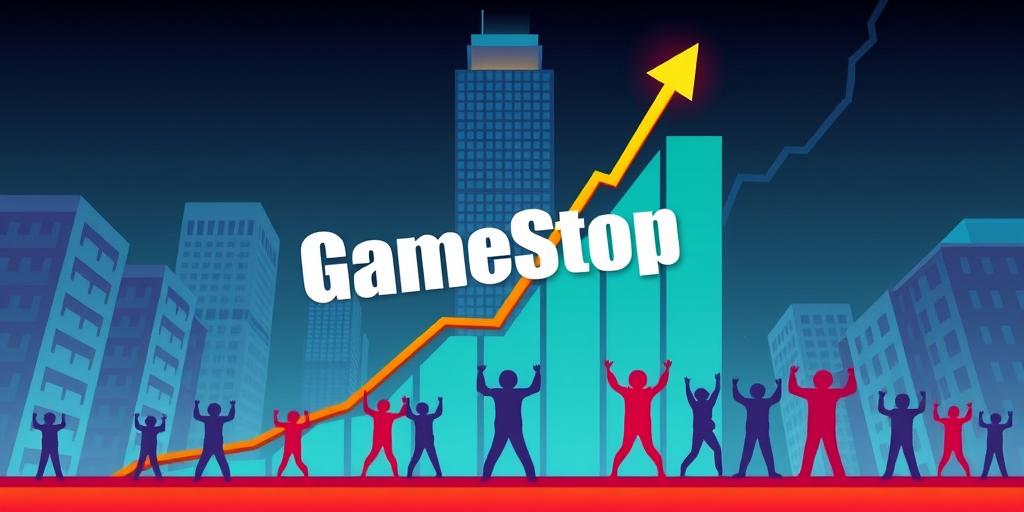The GameStop Saga: How Retail Investors Harnessed Psychology for a Short Squeeze
The GameStop saga, a captivating event in the history of financial markets, unfolded in early 2021, capturing the attention of both Wall Street veterans and casual observers alike. At its core, it's a story about how a band of retail investors, armed with a deep understanding of market mechanics and a touch of behavioral psychology, orchestrated a short squeeze of unprecedented scale.
Understanding the Players
- GameStop: A struggling video game retailer facing an uncertain future in an increasingly digital world.
- Hedge Funds: Large investment firms that had taken substantial short positions in GameStop, betting on its stock price to decline.
- Retail Investors: Individual investors, primarily organized through online communities like the subreddit r/wallstreetbets, who saw an opportunity to challenge the established financial order.
The Mechanics of a Short Squeeze
To understand the GameStop saga, it's crucial to grasp the concept of a short squeeze. Short selling involves borrowing shares of a stock and immediately selling them, with the expectation of buying them back at a lower price in the future and pocketing the difference. However, if the stock price rises instead of falling, short sellers may be forced to buy back the shares to limit their losses, driving the price even higher. This is known as a short squeeze.
The Psychology at Play
Several psychological factors contributed to the GameStop short squeeze:
- Groupthink: The r/wallstreetbets community fostered a sense of collective identity and shared purpose, reinforcing the belief that they could take on Wall Street.
- Fear of Missing Out (FOMO): As the GameStop stock price soared, many investors jumped on the bandwagon, fearing they would miss out on potential gains.
- Revenge Trading: Some investors were motivated by a desire to punish hedge funds they perceived as predatory or unfair.
The Unfolding of the Squeeze
As retail investors began buying GameStop shares, the stock price started to rise. This put pressure on hedge funds with short positions, forcing them to cover their shorts by buying back shares, which further drove up the price. The stock price soared from around $20 in early January 2021 to a peak of nearly $500 later that month.
The Aftermath and Lessons Learned
The GameStop saga had significant consequences:
- Hedge Fund Losses: Several hedge funds suffered substantial losses, with some facing potential collapse.
- Brokerage Restrictions: Some brokerage firms temporarily restricted trading in GameStop and other volatile stocks, sparking outrage from retail investors.
- Regulatory Scrutiny: The events prompted increased scrutiny of market manipulation and the role of social media in investment decisions.
The GameStop saga serves as a reminder of the power of collective action and the potential for behavioral psychology to influence financial markets. It also highlights the importance of understanding market mechanics and the risks associated with short selling and speculative trading.
Conclusion
The GameStop short squeeze was more than just a financial event; it was a cultural phenomenon that challenged the traditional power dynamics of Wall Street. By understanding the interplay of market mechanics and behavioral psychology, we can gain valuable insights into the forces that shape financial markets and the potential for both opportunity and risk.









